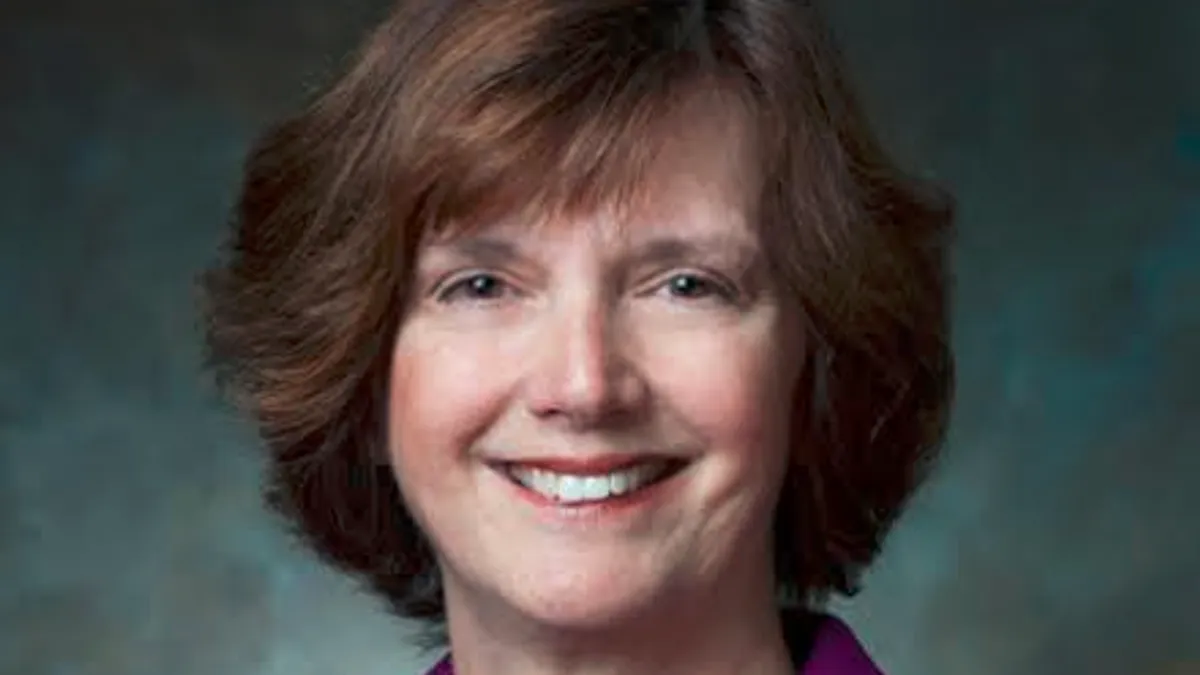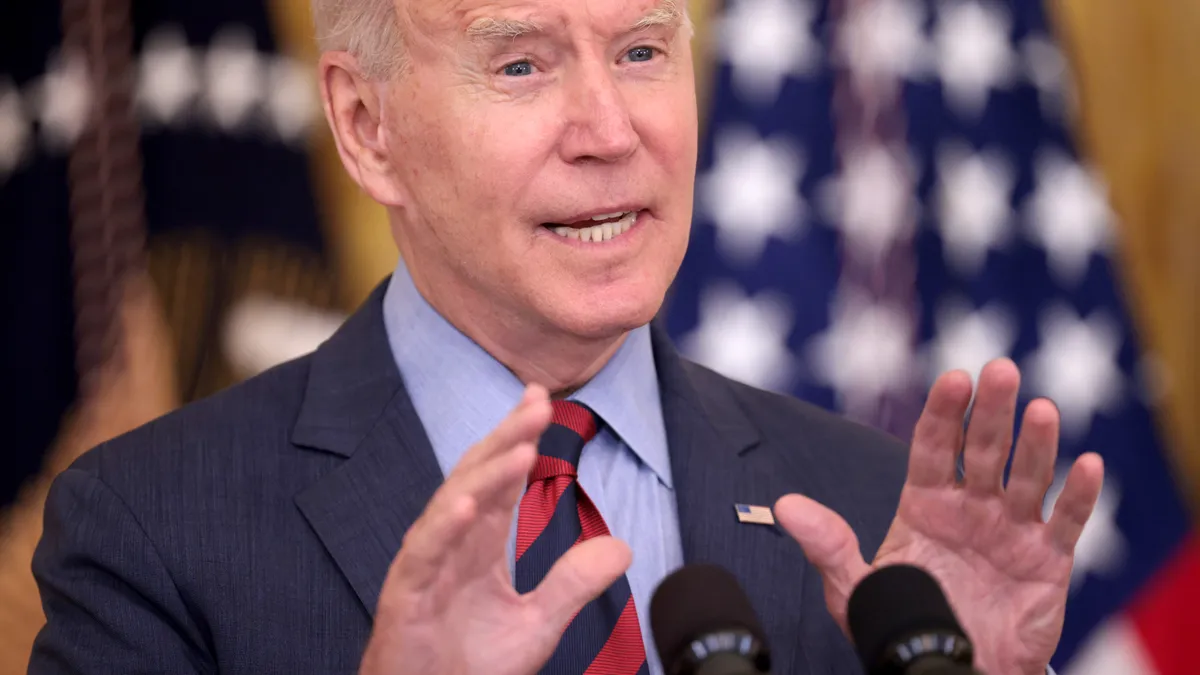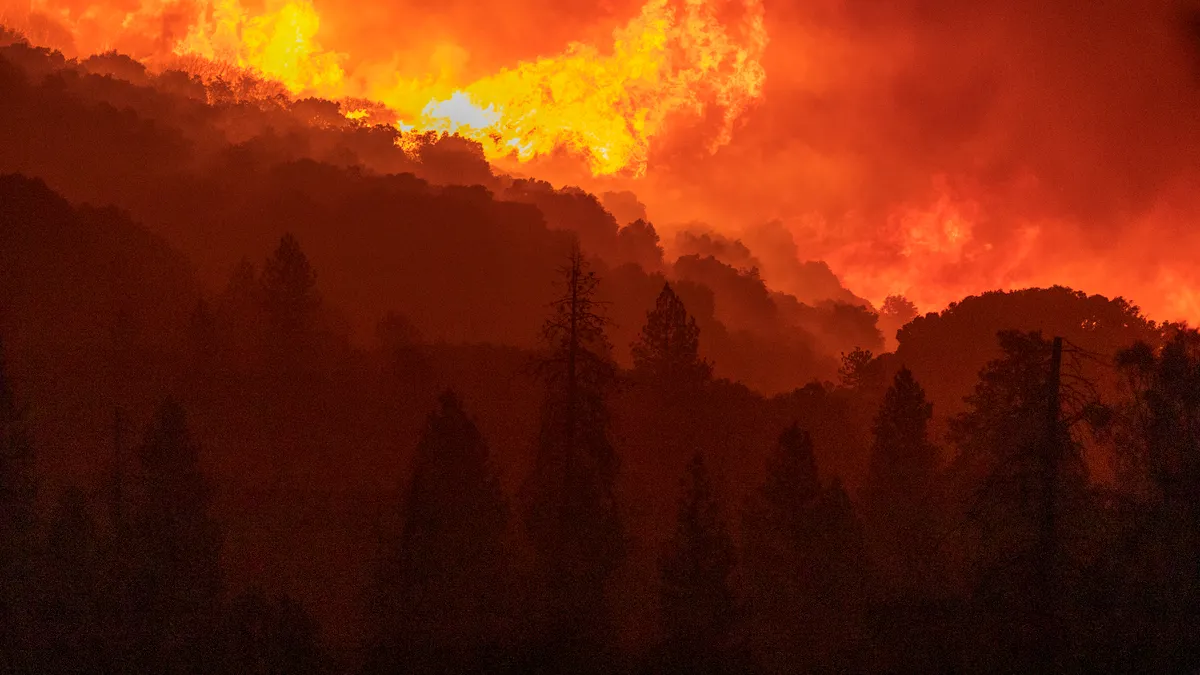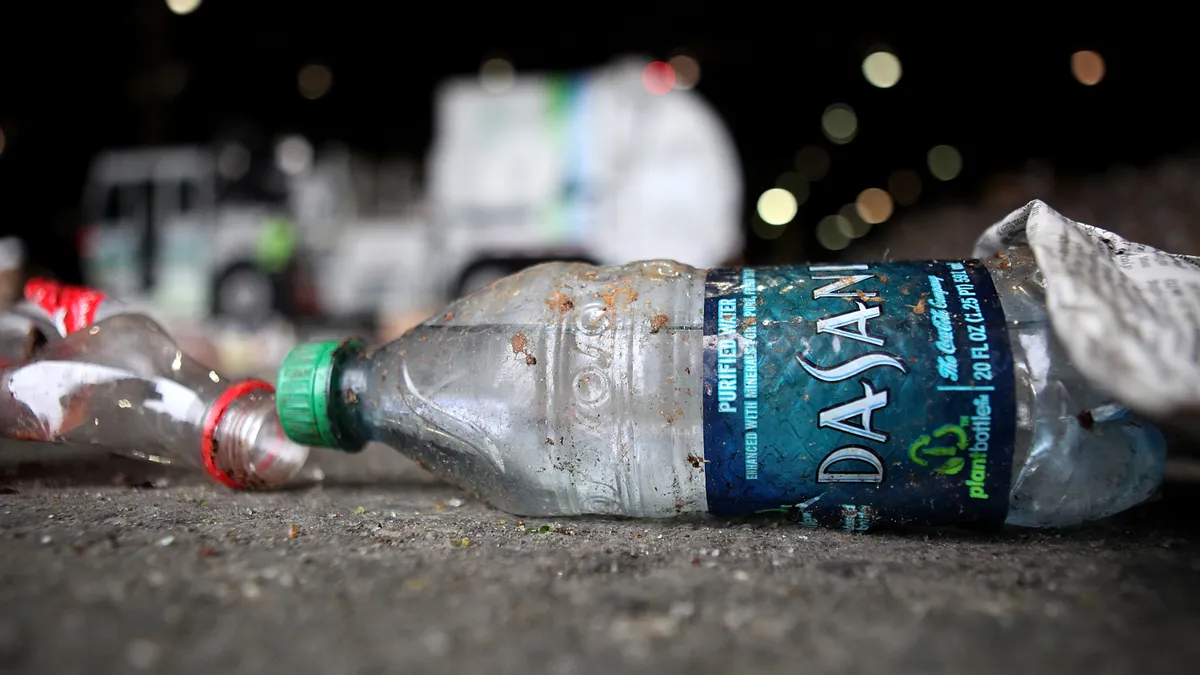"This is an industry of innovation, there are a spectrum of solutions for waste management, and I don’t want to lose sight of all of those solutions because they all have a place," Sharon Kneiss said passionately as she explained to Waste Dive the challenges of waste disposal.
Kneiss, of all people, would best understand the many solutions for waste management. As the president and CEO of the National Waste & Recycling Association (NWRA), Kneiss has lead the industry in exploring many out-of-the-box waste management solutions. The chemist has encouraged the use of creativity and ingenuity across the industry, and has even spearheaded initiatives to guide professionals toward an eco-friendly future.
For our third installment of the 'Women in Waste' spotlight series, Waste Dive caught up with Kneiss to ask her experiences on leading one of the top waste & recycling associations in the industry.
WASTE DIVE: To start off, can you explain to me a bit of your background?:
SHARON KNEISS: I’m a chemist with an MBA, and I have done much on the policy development product regulation side for many, many years. I’ve worked with the oil industry, with the chemical industry doing work on plastic products, I’ve been with Forest & Paper running their regulatory affairs group, and all of this touched on recycling throughout my career, as well as other issues.
When the opportunity came up (at what was then called the Environmental Industry Associations), there was a real match for me as far as understanding trade associations and understanding the importance of waste management, because I also did waste management issues at all of those places. So there clearly was a match — while I was in other industries there was still a crossover into the waste and recycling industry.
Having a background as a chemist is very different than other industry professionals. How does it relate to your work on a day-to-day basis?:
KNEISS: Having a technical background is very, very helpful because this is an industry that’s seeded in innovation. Of course, we’ve seen a lot of innovative developments in recycling over the last several years — actually decades — and a lot of innovation on the waste handling side in general. Landfills are highly engineered processes and of course we extract landfill gas and use that to power electricity, and so it does help to understand all of those processes as well as to understand the regulatory requirements that are being placed on the industry.
During the time that you’ve been with NWRA, what has been your favorite thing about your role?
KNEISS: When I came to this industry I was new to the industry, but what I’m so impressed about and so excited about is that the people in this industry, unlike the other industries I have worked in, are very proud of what they do and they’re so passionate about what they do. The level of passion that people bring to their jobs is energizing. And the level of relationships in this industry is unlike the other industries ... It's very relationship-based.
What are some of the most important issues that you see facing the industry today?
KNEISS: Right now, one of the big issues is the challenges facing recycling. The challenges in terms of the cost pressures right now because of the commodity prices, and the challenges in terms of addressing contamination of the recycling stream.
Is that something that you’re working to combat through your role?
KNEISS: Absolutely. We developed a communications strategy earlier this year and what we decided to do was to define major areas that we would address throughout the year and this is one of them.
Another big issue is safety — getting our drivers home safely to their families every day. So we have an initiative called “Slow Down To Get Around” which encourages states to put some requirements in place that drivers, when they see a trash vehicle, need to slow down and give the vehicle a wide birth to get around it, just like you would an emergency vehicle. And we’ve been able to get that in nine states, we’re very excited about it and we’re looking at it in more states this year.
Are there more safety initiatives that are coming up?
KNEISS: Absolutely. We’re looking at some data gathering so we can understand the state of the state, so we’re in the middle of that. What we’re also doing is looking at tools that we can provide to the members that they can use directly. So we developed a glove box guide on all of the safety requirements that drivers can carry with them, and we also instituted third party safety requirements — these are a set of principles that we developed — so that when you’re at a facility that is not yours as a customer or a vendor, there are certain guidelines you have to follow in that facility to be safe. And we are hosting a summit, probably March of next year, where we take a hard look at: What are our priorities? What are the strategic initiatives that we need to take on in safety? Where do we want to be 3 years from now? And what do we have to put in place in order to get there?
Has being a woman in this position posed any challenges for you that maybe a man in the same position wouldn’t have faced?
KNEISS: They have been welcoming of me from the moment I stepped in the door so it really hasn’t been an issue for me at all. It probably gives me an opportunity to look at the issues through a different set of eyes. This is an industry that is looking to expand the diversity in the industry so it’s actually a very exciting time to be a woman in this industry. Now the challenge — and we know we have this challenge as the industry looks to become even more diverse — is to build the image of the industry as something that is enticing to a diverse population. I think that’s something we’ll be working on in the coming years.
How do you think you can present the waste industry as enticing for women?
KNEISS: [We must] demonstrate that this is an important, vibrant industry, like many other industries across this country.
What advice may you have for a woman who is just entering this field and maybe feeling outnumbered or intimidated by the demographics?
KNEISS: As I mentioned, it’s a very welcoming industry, and they look for strong performers, people who can be passionate about what they do, can perform well, and are comfortable working side-by-side with diverse employees.
What do you hope that your legacy as the president of NWRA is in the future?
KNEISS: I hope my legacy is to be seen as the person who took this association during a time of transition for the industry and worked with members to bring the association to the point where they were leading the effort in terms of providing members with the kind of information and tools to get ahead of the transition. My legacy — and it’s actually our vision — is to be the most effective and respected voice for the waste and recycling industry.



















